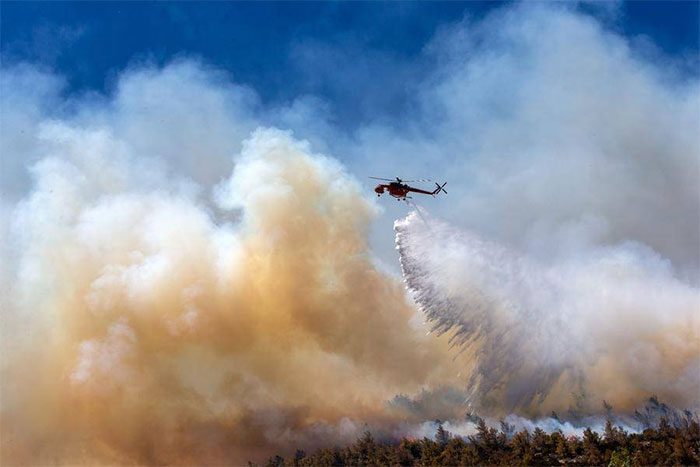A recent study by scientists in California, USA, indicates that prolonged exposure to wildfire smoke can significantly increase the risk of developing dementia.

Smoke rising from a wildfire in Athens, Greece. (Photo illustration: THX/TTXVN)
The researchers analyzed data collected from 2008 to 2019 involving 1.2 million residents over the age of 60 in Southern California. All participants were free of dementia when the study began. On average, each individual was exposed to fine particulate air pollution, specifically PM2.5, continuously for three years.
The study revealed that for every 1 microgram per cubic meter (mcg/m3) increase in wildfire smoke pollution concentration, the risk of being diagnosed with dementia rises by 18%. Additionally, exposure to PM2.5 not originating from wildfires also increases the risk of dementia, but to a much lesser extent.
Dr. Joan Casey, the lead researcher from the University of Washington in Seattle, stated that although the increase is relatively small, during severe exposure to wildfire smoke over a few days, PM2.5 concentrations can reach extremely high levels, up to 300 mcg/m3.
This study highlights the health risks posed by wildfire smoke, especially given the increasing frequency and intensity of wildfires in the U.S. in recent years. The U.S. Environmental Protection Agency (EPA) has also proposed strategies to help minimize exposure to this type of pollution.


















































